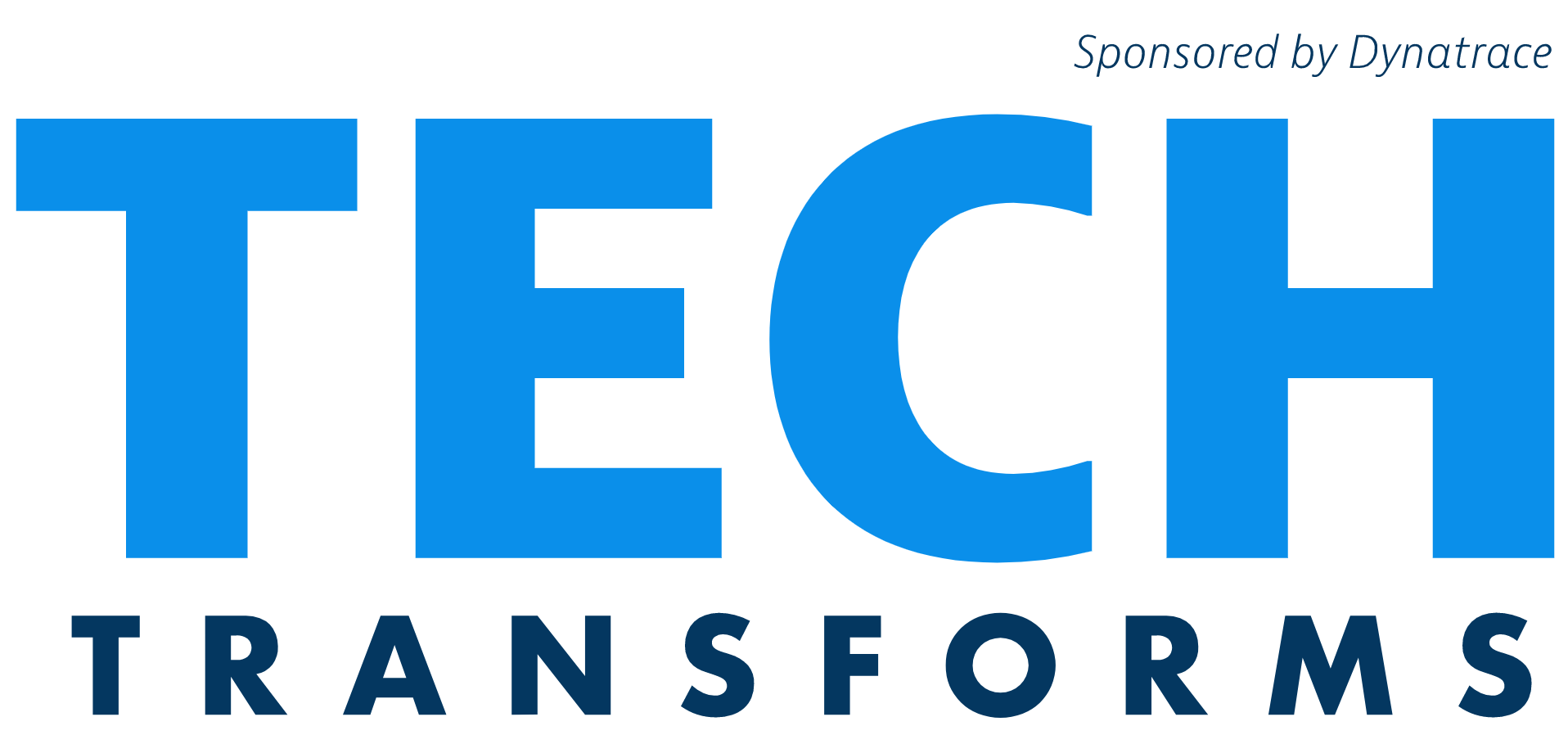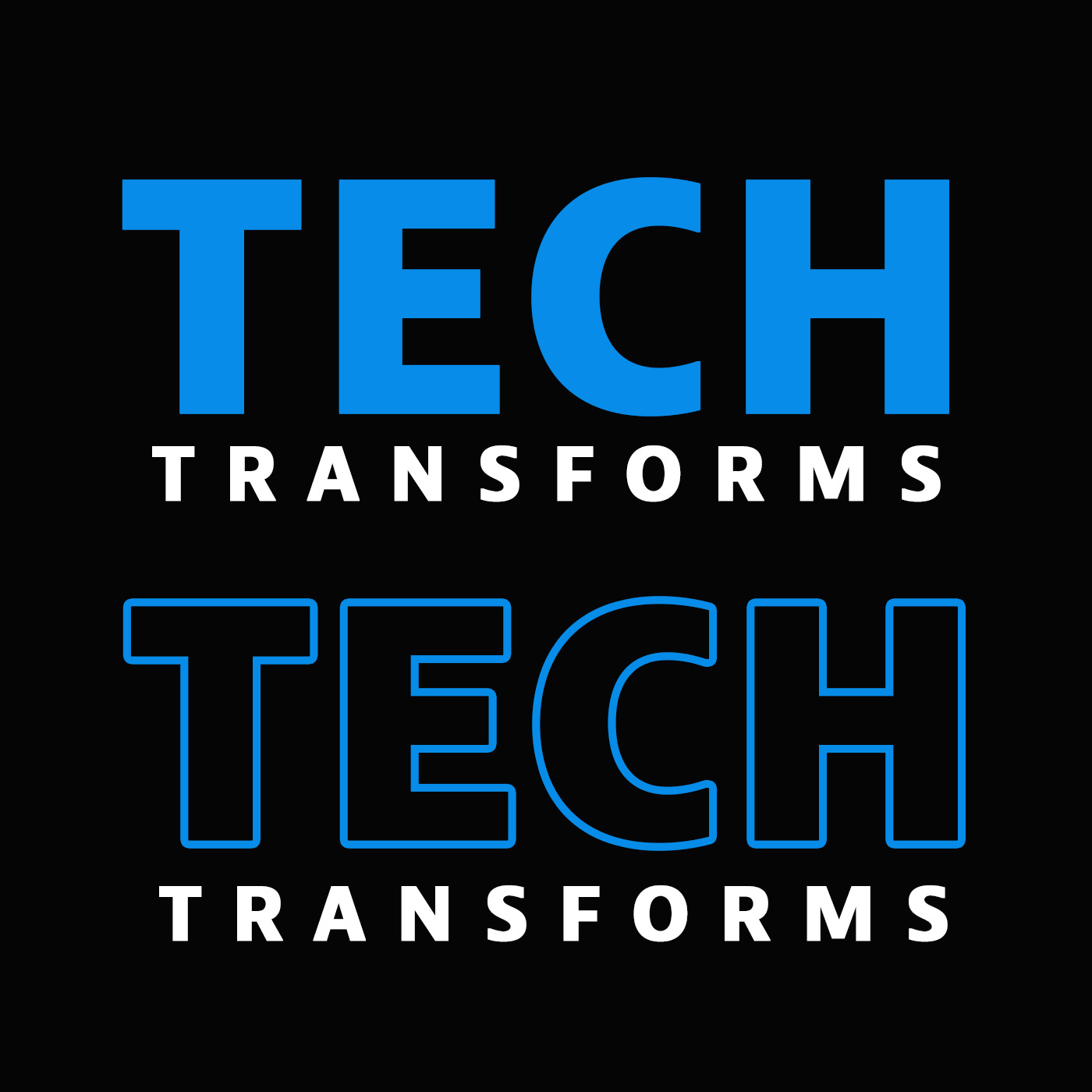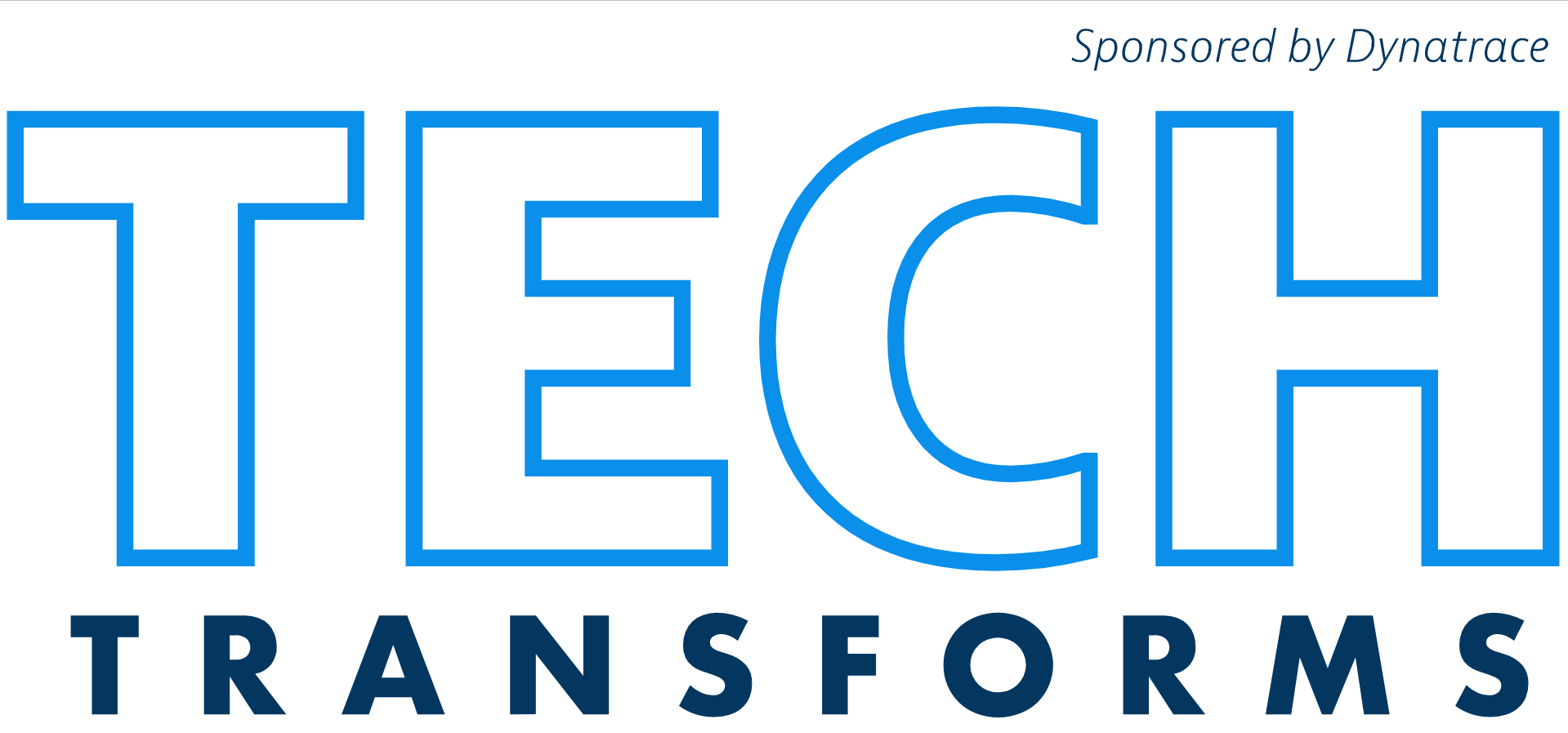Episode 24
Web3: The Start of the Power with Sandy Carter
Sandy Carter, SVP and Channel Chief at Unstoppable Domains and former Vice President at Amazon Web Services talks about the groundbreaking work she is doing with Web3. Listen in to get more information on Web3 capabilities and hear about the chaotic creation that Unstoppable Domains is taking on.
Episode Table of Contents
- [00:53] A Leading Pioneer in Web3 and Digital Transformation
- [08:280] A Hot Topic Element of Web3
- [15:12] Women Are Getting Involved With Web3
- [23:04] What Web3 Means for the Government
Episode Links and Resources
A Leading Pioneer in Web3 and Digital Transformation
Carolyn: Today, we're talking to Sandy Carter, and I'm excited to have her all to myself. Sandy is a renowned technologist, bestselling author, and current senior VP at Unstoppable Domains. She is one of the leading pioneers in the digital business, and a former Fortune 25 business executive. She’s a leader focused on helping companies with innovative and digital transformation through culture and technology, like AI and Internet of Things.
Sandy, you have an incredible background. You've been with IBM, recently with Amazon Web Services, and now you're working with Unstoppable Domains. I would love for you to tell us your story. What is the journey that you've had with your career? How did you get to Unstoppable Domains, and what is it?
Sandy: Well, it's really interesting. You'll notice in all of my companies, IBM, and then you missed a startup. I had a startup in between and then AWS, and then now a startup with Unstoppable. All of those companies were on the leading or bleeding edge of technology. At the time I was at IBM, we were bleeding edge for social media and business, which was that Web 2.0 era. I then went to form my own company and I was doing artificial intelligence. In fact, I thought it was so cool.
I was doing like a Myers-Brigg on companies to determine their culture so that we can match them with the right innovation tactic. That way, they didn't go and try something that didn't fit their culture, because culture eats strategy for lunch.
Developing the Right Processes for Web3
Sandy: Then I moved on to Amazon, and Amazon was all about the cloud, another tech transformation that was going on. I learned so much from each of these companies. Leadership principles from Amazon and how to develop the right processes and mechanisms from IBM. From my startup, how to be really scrappy and to do things that 80/20 rule; not perfect, but good. Good for the customer, valuable for the customer, but not necessarily reaching that perfection mark.
When Web3 started out, I was really interested in it. I’ve done some blockchain at Amazon Web Services and I was fascinated with the new technology. So I started doing all of these side projects on NFT, setting up my wallet, doing all this stuff on the side. It turned out that a company approached me called Unstoppable Domains. I was fascinated by what they were doing in the marketplace. They’re focused on digital identity and how, in the Web3 world, you take your identity with you. It's not linked with a particular application.
I thought that was fascinating given my history. Looking at Web3, I was like, why would I keep doing these side projects when I could do this full time? So, I came on with Unstoppable. The founding team is great, the portfolio of products is really fascinating to me, and the partners are all the who's who of Web3. So, here I am and I'm having a blast.
Web3 Centralization and Decentralization
Carolyn: You talked about several things that are a little baffling to me. First of all, Web3. I'm embarrassed to say that I really haven’t heard that term until I knew that you were a guest. I started looking at some stuff that you've talked about, and I was like, okay, what is this? So, I read some articles over the weekend and I'm still not sure exactly what it is. It's decentralization and centralization and then decentralization.
Sandy: I would define Web3 in one word, and that would be an ownership model. When I say an ownership model, if you think about it, let's take Uber for example. I was an early user of Uber. I’ve told all my friends about it because I was living in Silicon Valley. I was Ubering all over when Uber was just in San Francisco and Silicon Valley. So, I was attracting new users and I got value because my friends thought I gave them something of value. But now, Uber is worth about $50 billion and I didn't get any of that financial benefit.
I was providing and attracting users for Uber, but the extraction of value came from Uber itself. Web3 turns that on its head. You’re now not a user of the application, you are a member. You have ownership rights in what you're doing. Web3 really introduces that real ownership model to the internet that combines economics, art, game theory, and technology in a very interesting way.
The Five Essential Elements of Web3
Sandy: Web3, essentially Web3 means that something is built on what I would call five essential elements. One, it is decentralized. You said decentralization, or at least partially decentralized, meaning there's no one company who owns all the servers, all the infrastructure. It is decentralized or at least partially decentralized.
Two, there has to be a digital identity that travels with you. Think about today. You go to sign into LinkedIn, you use one ID. Then you go over to Instagram, you're using a different ID. When you go into TikTok, you're using a different ID. But I can now take my digital identity, which I've built with Unstoppable Domains, sandy.crypto.
I can take that identity and I can enter a metaverse. With that same identity, I can enter DeFi, decentralized finance with Cook Financial. And with that same identity, I can enter a game like Decentraland or Sandbox. That same identity travels with me, it's all built on the blockchain. That's the third assumption for Web3; decentralized digital identity built on the blockchain. It's trustless, meaning that there is no in-between.
I sign a smart contract directly with the person I am purchasing. There's not a bank or a lawyer or anything in between. It financially benefits the members because remember, we have members now. So if I buy an NFT, like a Lazy Lion, I now own that Lazy Lion. I can now create a t-shirt with that Lazy Lion, and that t-shirt could enable me, for example, to create my own business. It's really all about that ownership model.
A Hot Topic Element of Web3
Carolyn: This reminds me of something that I worked on years ago. I worked for Novell. I'm sure that you know who that company is, even though it really doesn't exist anymore. I was working with developers on a digital identity or a digital wallet, and it didn't go anywhere. It’s a hot topic and it was innovative and cutting edge. It sounds like, is it the blockchain that has enabled it to actually be secure and be something now?
Sandy: Blockchain is one of the underpinning technologies and blockchain does allow that transparency and that interoperability. It does help with that ownership too. Make it immutable. It can't be changed for sure. So, it is an element in Web3, just like we talked about those five elements. It has to be decentralized or at least partially decentralized. You have a transportable digital identity. It's built on blockchain, it is trustless and it financially benefits users. Blockchain is definitely a part of the equation.
Carolyn: If we were in a Web3 world and Uber's just coming online like it did when you were an evangelist for Uber, you evangelizing Uber to your friends and would give you shares? You would have some kind of ownership in Uber and you would reap the benefits of this $50 billion company?
Sandy: I could, yes, absolutely. There is this concept of fractional ownership, and fractional ownership means that whether it is a piece of art or a company or a piece of real estate, you can have a fractionalized ownership of that. For example, NFTs allow for fractional ownership of any digital native asset.
Things That Happen in Web3
Sandy: People can own a portion of something that otherwise they might not have been able to afford. It extends beyond art, like a Lazy Lion or a Bored Ape. Of course, the use of NFTs and blockchain enable you to prove ownership, and you do that today. I have a friend of mine who collects Chanel purses. Of course, if you're going to spend that much money on a purse you want it verified.
My mom used to be a Boston Red Sox fan. I guess she still is a Boston Red Sox fan and she collects Ted Williams. I don’t even know who he is, but he's an old-time baseball player. She owns that baseball card and she had it authenticated, verified that it's real. It's the same thing that happens in Web3 with that verification.
Carolyn: Does the creator of the asset or the company have to say, "Yes, I want to buy into this Web3 idea and have this fractionalized ownership"?
Sandy: Yes. If you're a company like Parcel, Parcel is doing Web3 real estate. Or if you look at some NFTs, not all NFTs that are art are fractional ownership. Some of them, I buy and it's outright mine. I own it, I can do whatever I want to with it. Some I buy into it and the artist gets a fractional piece of that forever. If I go and produce a t-shirt and I sell the t-shirt for $10, then maybe the artist gets $1. I get $9 in perpetuity because I'm now a part-owner and they're the creator of it.
When Will We Be in the Web3 World
Sandy: This is why a lot of people in music love it. A lot of them today, when they sign on to agents and all these companies, the amount they end up getting is so small. In fact, this weekend I was listening to an artist. They said, "Look, based on the digitalization of music today, after everybody takes their cut my cut is pennies. So I have to do t-shirts, concerts, and ads, because I don't make enough money on my music, which I really should be making the money on."
Carolyn: When will we be in this Web3 world, or are we already dipping our toes?
Sandy: We're at the very early stages. I would say, we are super early. The tech right now can be very expensive. Think about the gas fees that you have to pay sometimes. A gas fee is not like the gas for your car. The gas fee that you're paying is for the permission to use those decentralized servers. In a centralized world, a company's paying for that. They're going to get the benefit of that too. They are going to get the financial benefit of it.
In this new Web3 world, which is decentralized, that gas fee is what you're paying to use a part of that decentralized network. That can be expensive today, and it may not be completely ready. If you think about it, blockchain, there's thousands of articles. Is blockchain scalable yet? Not quite yet, but it will be. I would say that we're in the dial-up phase of Web3. What's that movie? There's a movie, and you can hear the AOL sound of the modem.
Carolyn: Oh, You've Got Mail?
The Chaotic Creation of Web3
Sandy: You've Got Mail, that's right. So think about that sound right now, and you think about Web3, we're in that early stage of it. Or as someone said this weekend at EatDenver, "We're baking a pie and the pie's in the oven. You don't want to take the pie out too early because you can't really consume it. It's not done." We're in that early stage of Web3, and that's why I wanted to jump in early.
I like that early stage, I like that chaotic creation for a couple of reasons, and I just love the tech. I just consume and dive into the tech. But also, because I believe that at the start of this new era of Web3, I want the new era to be diverse. I believe that's what's going to make it more innovative. If we look at the past Web1, Web2, it has not been a diverse group of people shaping the future of it.
Carolyn: Meaning there's a few big companies that own all the servers and the services?
Sandy: Maybe a lot of men that shape the company. Maybe white men that shape it, not a diverse group of people who are inputting all of their ideas. I think that diversity; diversity of thought, of any kind, is important, having people from multiple countries. Just look at Web3. It is being created in Africa. I was just on the phone this morning with an African company that's doing phenomenal things. They're going to impact what we're doing here.
How Women Are Getting Involved With Web3
Sandy: Women are getting involved; not at a fast enough rate, but we're going to try to fix that. I was just speaking with Eman who started the Ancient Warriors NFT collection. He focuses on black and brown artists. Now we've got everybody coming in early into the pot. I can feel that pot being mixed up and stirred by so many diverse ideas. The diversity of thought ideas is only going to make it more innovative and more powerful.
Carolyn: As you're talking, I'm thinking about baking a cake. I’m thinking, if you only put flour in the cake, you don't have a cake and that's the same with these innovations. Without the diversity, you just don't get the cake. So, I love that. I want to ask about the metaverse.
We got some advertisements, some creepy ones, to be honest, with the Super Bowl around the metaverse. When I think of the metaverse, I think about things like Ready Player One where I'm an avatar. There was a movie with Bruce Willis, I think it's called Surrogate. Have you seen that?
Sandy: I have.
Carolyn: They physically never leave their house. They have a replica of them that they control from a console. These are the kind of things I think about with metaverse. Then last week, I was sick. By the end of the week, I wasn't sick enough not to take a meeting, but I was still sick enough that I looked like I'd been chewed on by wolves.
A Metaverse Meeting
Carolyn: And so, I didn't want to get on video but I thought, "You know what would be super awesome? It’s if I could do a metaverse meeting and I could go with the perfect outfit and the perfect hair and show up as my perfect self." These are the things that spin around in my head with the metaverse. I would love to hear what the metaverse really is from you.
Sandy: It's simply an online digital environment and you are inhabiting that new land as an avatar. You access it through virtual reality or augmented reality. A lot of gamers are already doing this today, if you think about the metaverse. But I like to think about the metaverse in terms of layers. Maybe it's from my tech background. So I see Web3, that decentralized access, that ownership model, being the base or the foundation of a metaverse. That is then dependent on the blockchain for trust, for that secure value exchange, which I then think will be governed by DAOs.
We haven't talked about DAOs yet, but DAOs are, again, another voting experience done with tokens. It’s a dynamic governance model of which the metaverse sets. The metaverse is really that digital experience and the worlds, but it requires a DAO structure, blockchain for trust and Web3. The interesting thing is, when we talk about the metaverse and we talk about Web3, I think we're talking about the same direction because the metaverse requires Web3 to really deliver on its promises in the marketplace today.
Carolyn: Is Unstoppable Domains building that foundation then, for the metaverse with Web3?
Unstoppable Domains
Sandy: So Unstoppable Domains is building your digital identity, which is represented as your domain. Think about it as the domain with super powers, unlike the domain of a Web2 world. When I say super powers, I mean it's user-owned and controlled, so there's no renewal fees. You own it. It's back to that ownership. It is decentralized because it's created on that blockchain.
Any third party can read it and resolve that name without anybody's permission, not even ours. Others can build tools and applications on it, like metaverses, as they move forward. For example, the Atlantis metaverse is built on top of our digital identity. Cook Finance, that's DeFi, is built on top of it. Parcel, which is doing real estate in the 3D world, is built on top of it.
What that enables you to do is to travel with that digital identity. For me, that's really cool because if you think about your digital identity, that travels with you. It travels with you to any application. It's your wallet, it's your healthcare data, it's your education records, it's your finance. It is basically you.
Carolyn: It sounds scary. If somebody hacked that, then they have access to me.
Sandy: Think about how many people hack you today. It already happened today. So let's think about the hack as one thing. Today, people are selling your information to companies so that they can market to you. People sell, oh, Carolyn just bought a house. I'm going to sell that data to someone so that they can market to her differently because she just bought a house. Carolyn just graduated from college. Because I know that, I'm going to market to you differently.
Protect People’s Privacy
Sandy: Today, that information is not even considered a hack. That's considered their right to share that information, it's not considered your right to that information. It’s their right to that information. It is the whole reason why Europe set up GDPR; to protect people's privacy. If you think about it, in the future, digital identity is going to be much more important than it is today. It will be used in all sorts of apps that we can't even imagine today.
I believe that it's extremely important that ownership and those rights sit in the hands of you, not in the hands of a government or a corporation. That would be more scary, if another person had all of my information. Now, in order to achieve this vision I think there's got to be a lot of things that happen. We've got to have a way to protect it. You pointed it out right away, you need to have that be secure.
We've got to make it easier. There's a lot of things right now that we need to work on in the Web3 world. One of those is ease of use and UI. Though I consider myself pretty techy, it's hard for me. I could not imagine my parents trying it right now. It's too hard. I do believe if you are a designer sitting out there or you do UX, it's going to become more and more important due to the rate of adoption that we get that ease of use correctly and we do it very fast.
What Web3 Means for the Government
Sandy: Today, it's too hard. I think that if digital identity is going to be what it is, we have to make it easier for everybody to participate in it.
Carolyn: What does Web3 and everything we've been talking about mean for the government?
Sandy: It's really interesting because governments are reacting in different ways to this. If you think about it, some governments like El Salvador, they've gone all in. They now use bitcoin and crypto....




